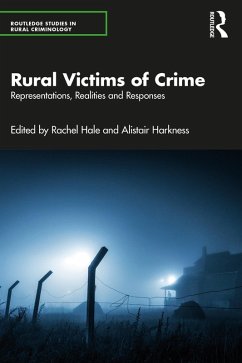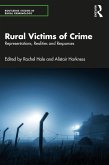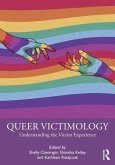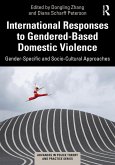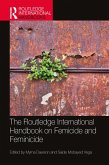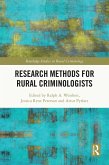Dieser Download kann aus rechtlichen Gründen nur mit Rechnungsadresse in A, B, BG, CY, CZ, D, DK, EW, E, FIN, F, GR, HR, H, IRL, I, LT, L, LR, M, NL, PL, P, R, S, SLO, SK ausgeliefert werden.
Jillian Turanovic, Associate Professor of Criminology and Criminal Justice, Florida State University
Victims of crime are neglected globally - and even more so in rural areas. Harkness and Hale address this void through Rural Victims of Crime, offering an innovative assessment of 'the rural victim'. The book is an expedition through notions of place and space, constructions of rural victims in a variety of contexts, and the impact that geographic location has on the type and prevalence of victimisation. A must-read for academics and students of the subject.
Willie Clack, Senior Lecturer in the School of Criminal Justice at the University of South Africa, Pretoria
Victimisation research typically focuses on urban settings, despite differences in experiences, impacts, risks, barriers to help-seeking, and responses in rural areas - as victim/survivors, advocates and practitioners can attest. This important collection provides much needed insights, evidence, theoretical and conceptual contributions, and calls for greater attention (and resourcing) beyond the cityscape.
Bridget Harris, Associate Professor of Criminology at Monash University and Deputy Director of the Monash Gender and Family Violence Prevention Centre
This volume significantly expands our understanding of victimization by situating it in a global rural context. Opening chapters lay the groundwork for coverage of a range of substantive topics, each structured around a theoretical framework. Case studies accompany these topics, putting a human face on each.
Ralph Weisheit, Distinguished Professor of Criminal Justice at Illinois State University
This book brings to the forefront the vital link between the need to understand the context of victimisation for the billions of rural peoples around the world, and their great need for access to justice services in the countries where they live.
Joseph F. Donnermeyer, Professor Emeritus at The Ohio State University

